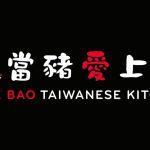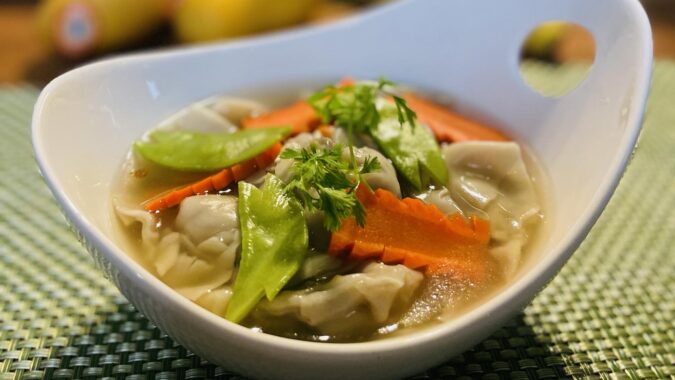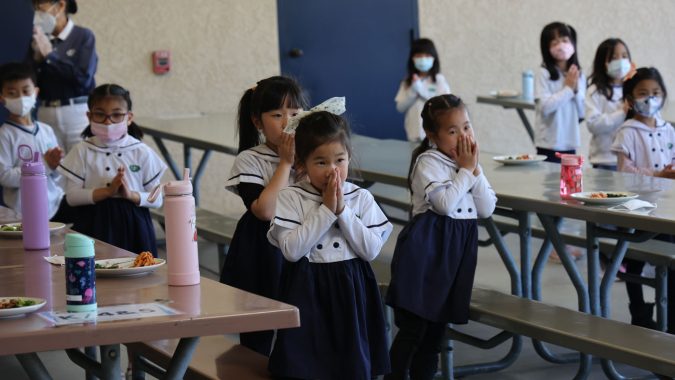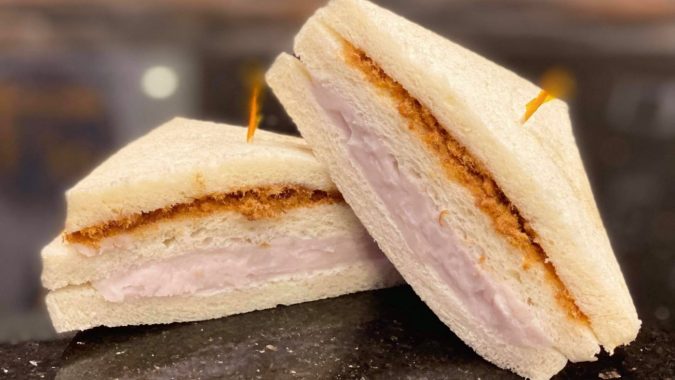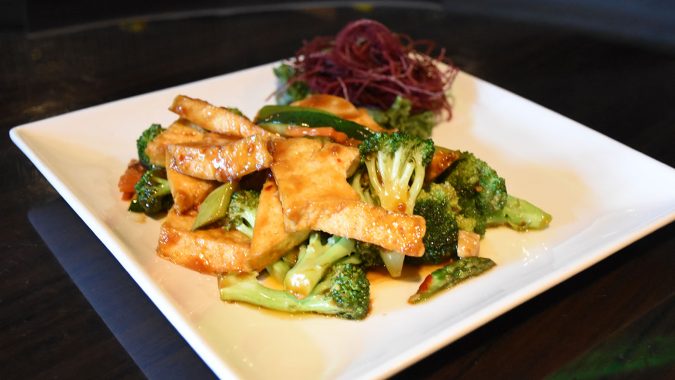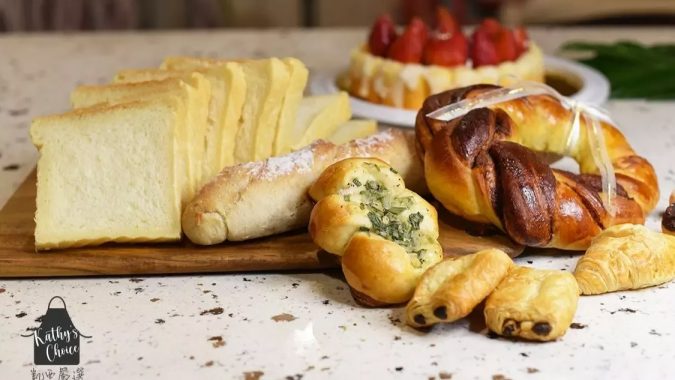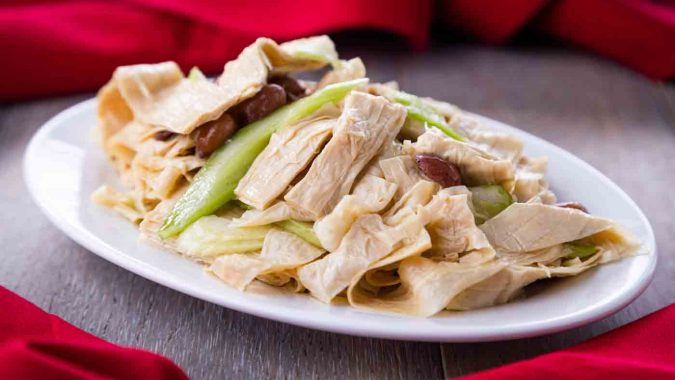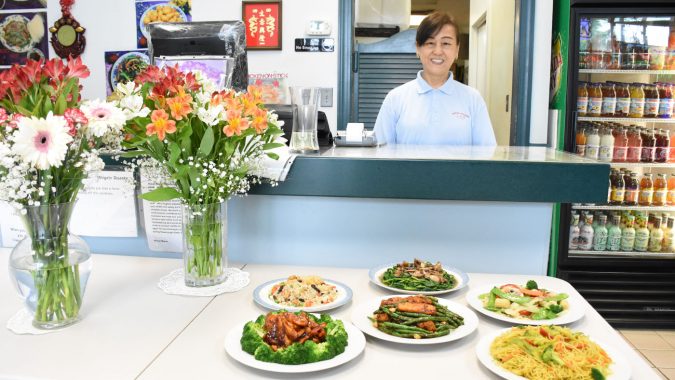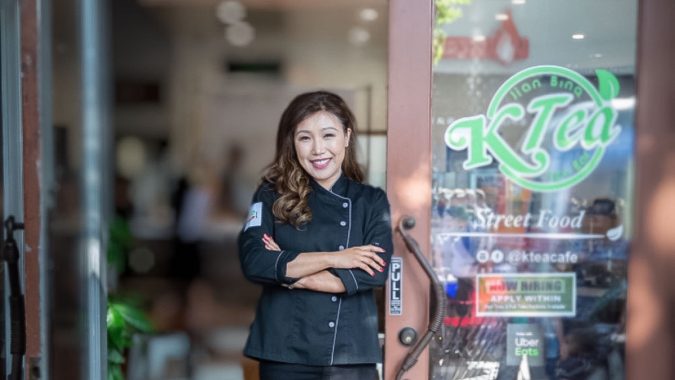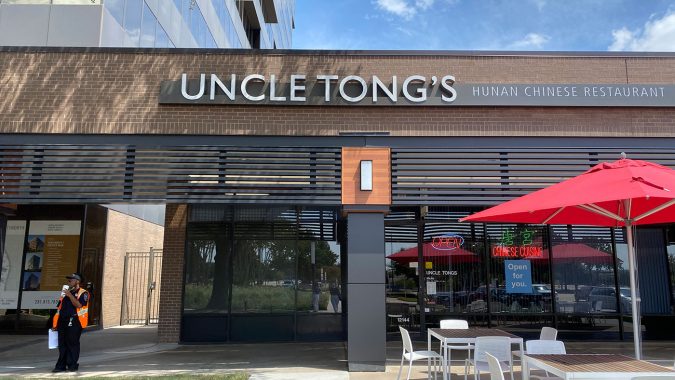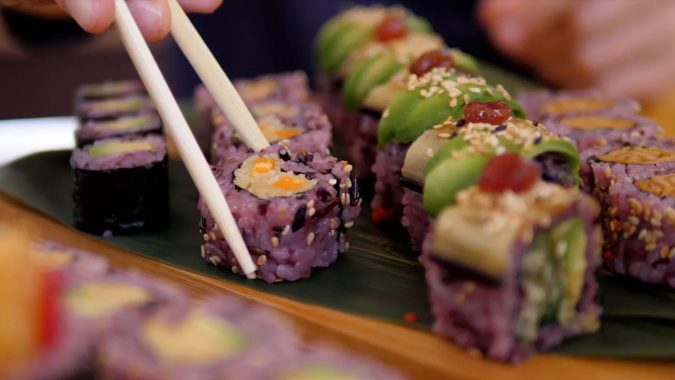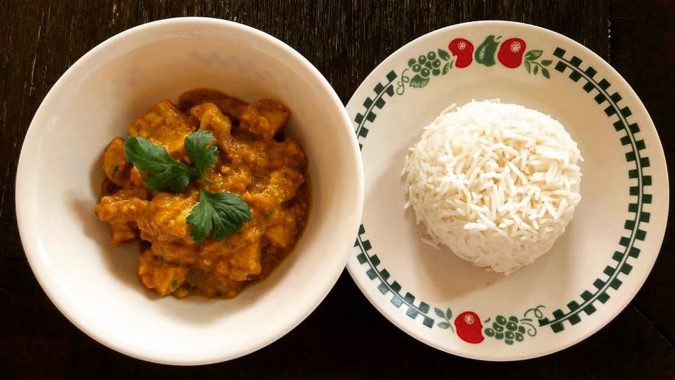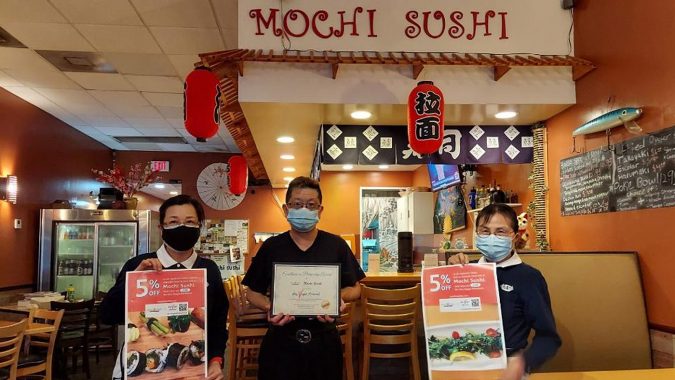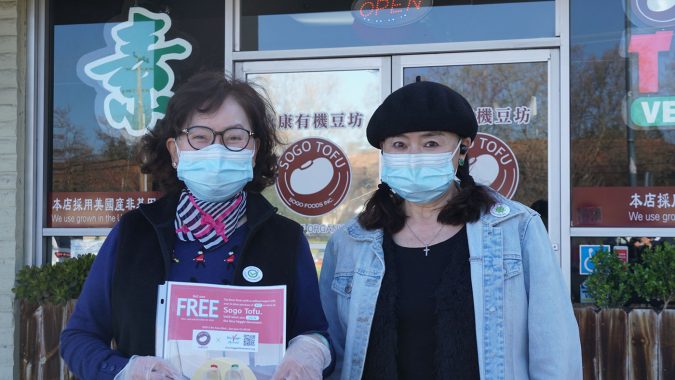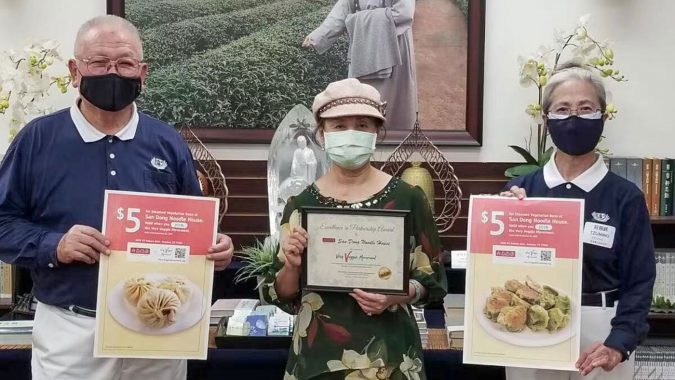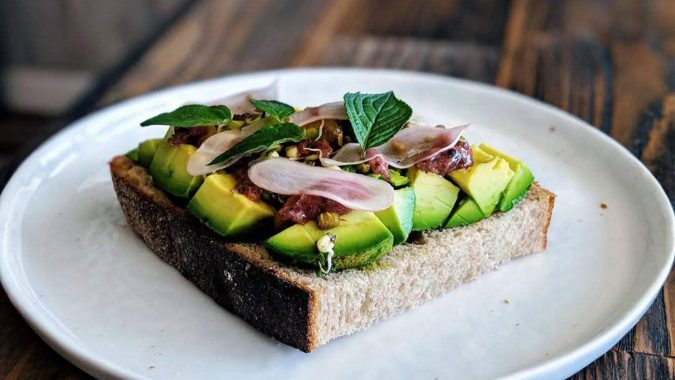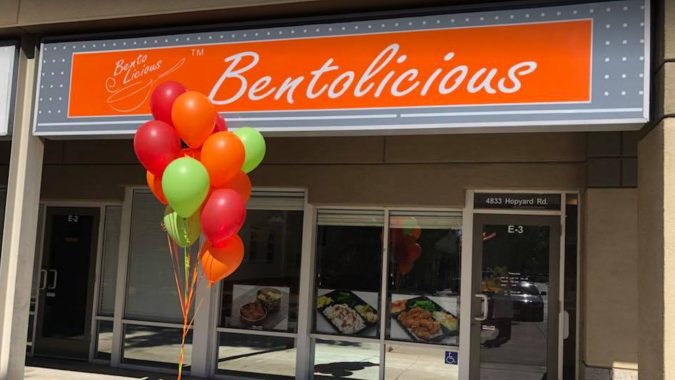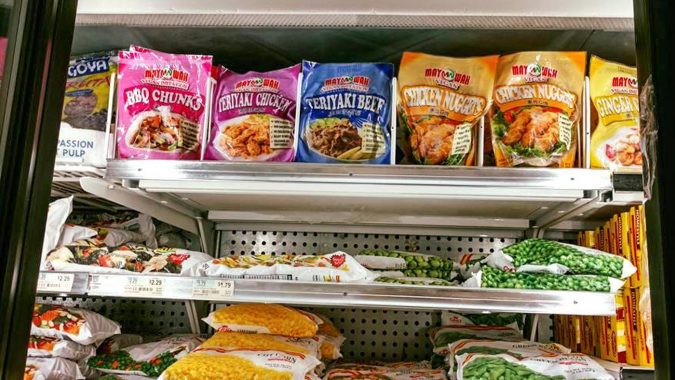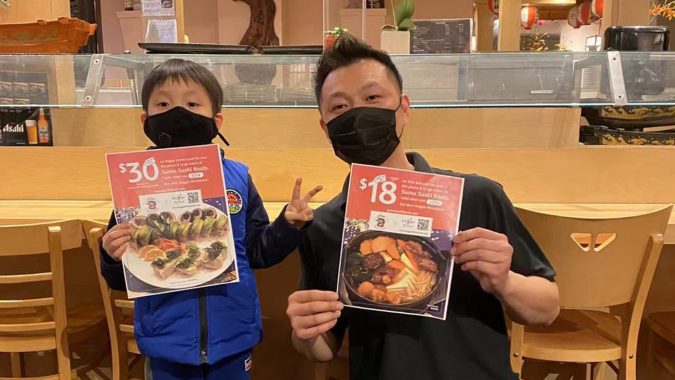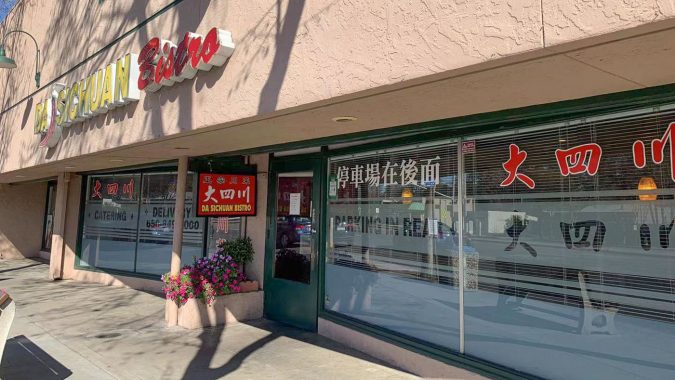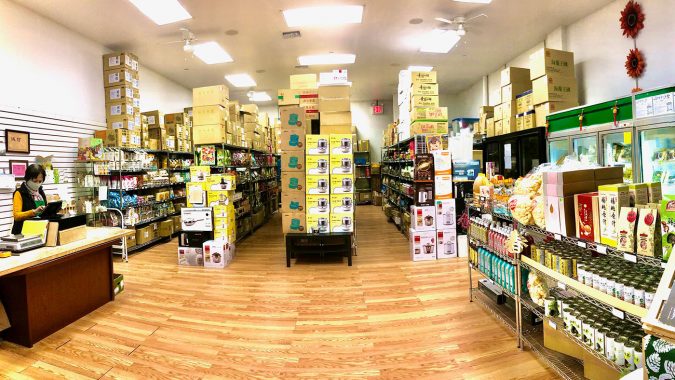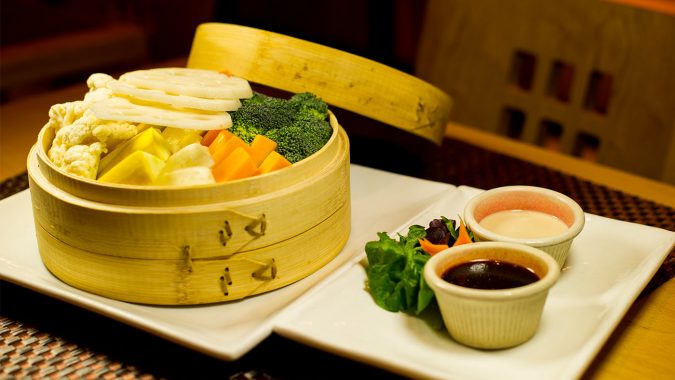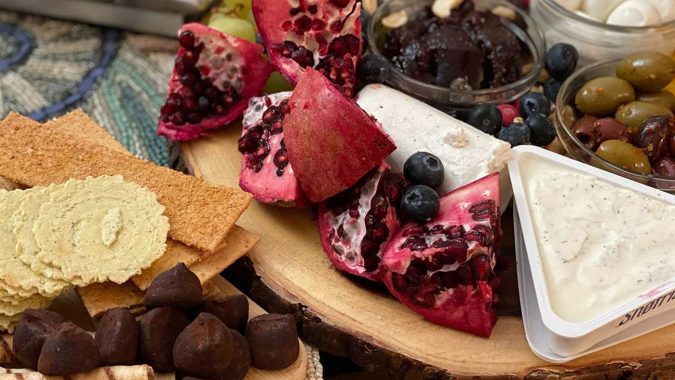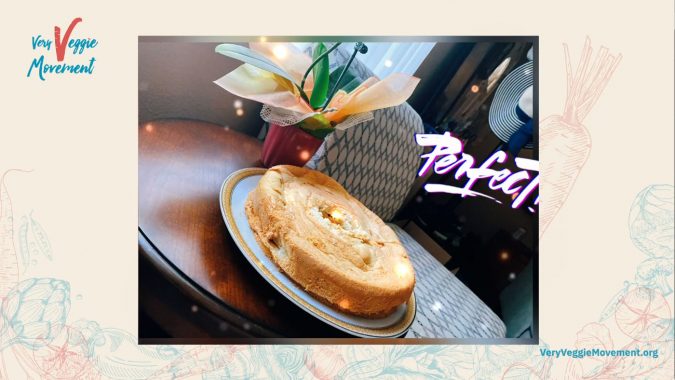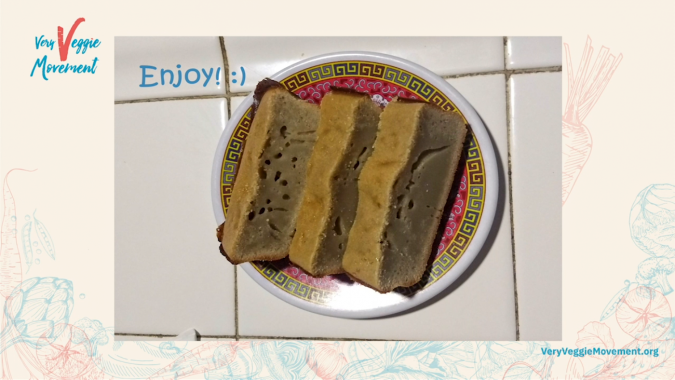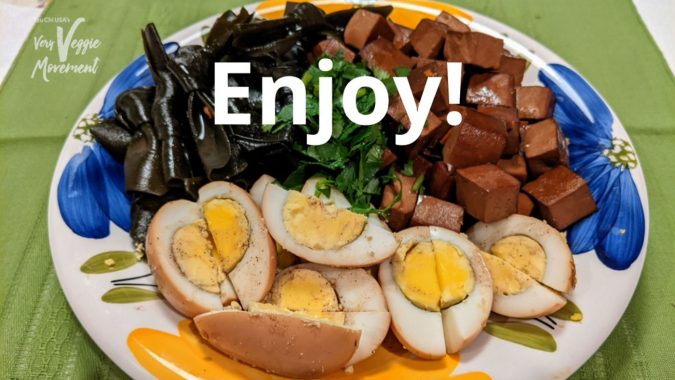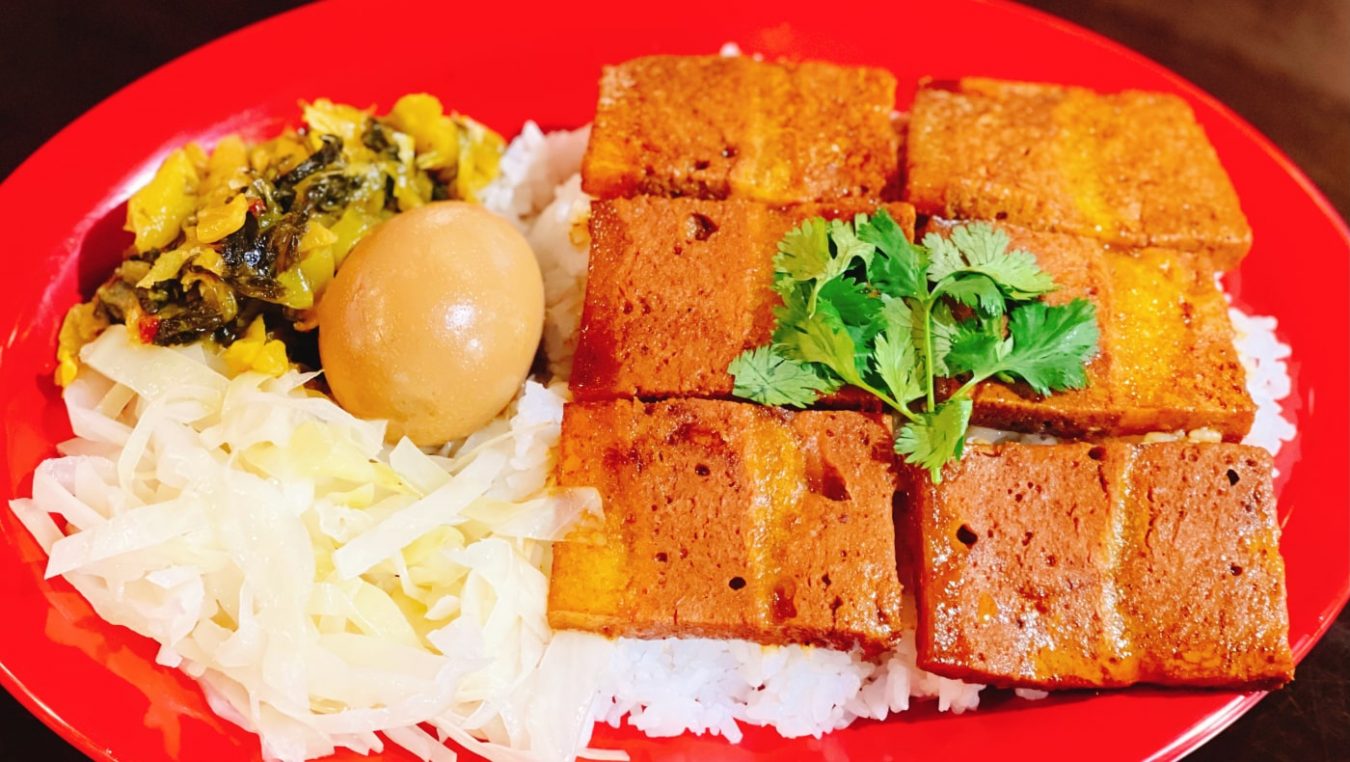
Written by Sophie X. Song
Translated by Sophie X. Song
Edited by Adriana DiBenedetto
Story shared by Love Bao Taiwanese Kitchen, a partner of the Very Veggie Movement: “Food is just like music in that it knows no borders. As long as it’s delicious, the customer will love it no matter where they come from. You can communicate with anyone with food and music.”
At the H Mart, located in the town of Cary, North Carolina, there is a small takeout window. Above it, a sign reads, “Love Bao Taiwanese Kitchen.” Before it, a line of guests eagerly awaits as the efficient yet orderly owner inside expertly assembles their signature gua bao.
The venue’s owner, Joe Luo, emigrated from Taiwan to the United States after completing his mandatory military service more than 30 years ago. And, for a time, he ran a popular Chinese restaurant with his family in Charlotte, NC. In 2014, however, Luo experienced a moment of inspiration and put the restaurant on hold to take a different route.
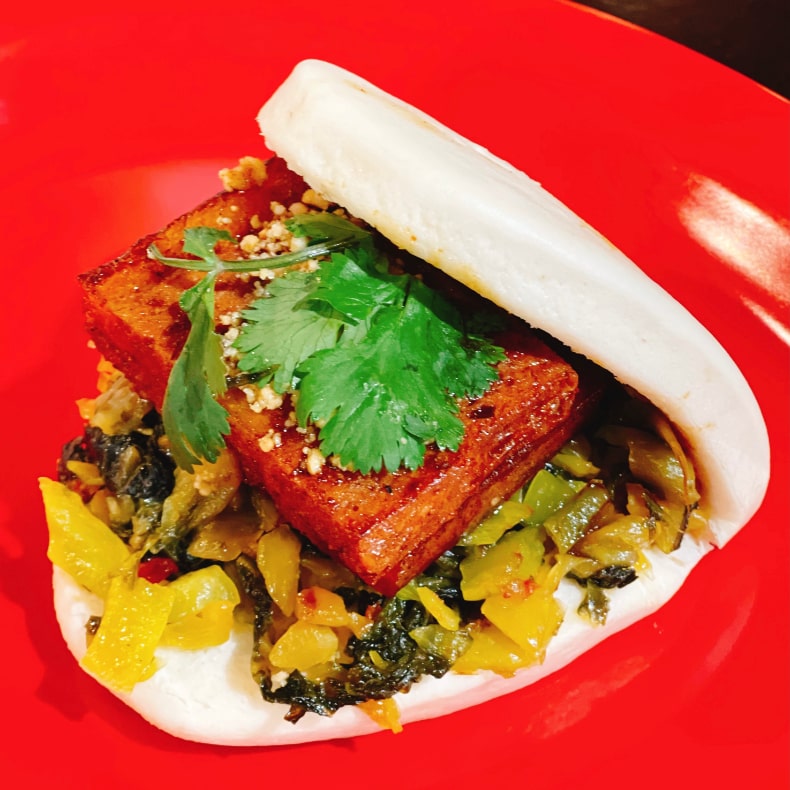
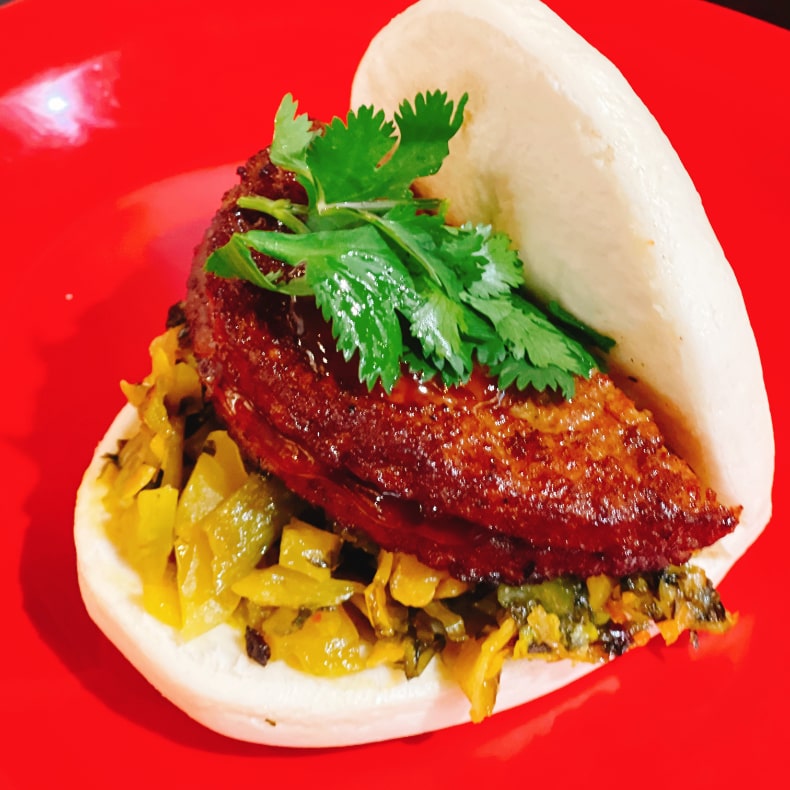
“After running a Chinese restaurant all these years, I suddenly had the idea to serve up Taiwanese food!” said Luo. “Many in the United States like xiaolongbao. I want to introduce them to gua bao, which is also delicious.”
Going Home to Start from Scratch
Luo traveled to Taiwan with a specific person in mind: his father-in-law.
Chef Huang has over four decades of experience in Taiwanese cuisine — including working as a private chef for a prominent Taiwanese businessman, Wang Yung-Ching. One of Chef Huang’s specialties also happens to be a tasty, unpretentious snack food that many grew up eating in Taiwan.
Although Chef Huang didn’t entirely understand Luo’s desire to return to Taiwan when he could be furthering his business in the U.S., he still taught his humble and tenacious son-in-law everything he’d learned over his long career. Chef Huang’s well of knowledge was enough to fill several cookbooks, from the selection of raw ingredients, to the proper reduction of rich sauces, and the adjustments that needed to be made according to season. And so, for more than one year, Luo steadily absorbed everything Chef Huang had to teach him.
“Even though gua bao is just a snack, I learned that it’s by no means easy to make it really delicious,” said Luo.
Luo initially put his culinary training into action in Taiwan, opening the first Love Bao in 2015. He chose a storefront in Keelung, near a popular temple, where the street outside came alive each evening for the bustling local night market. Many of Luo’s customers were locals who grew up eating gua bao. Each of them was an expert, but this did not daunt Luo. In fact, this was precisely the challenge he’d set for himself.
“Gua bao originated in Taiwan, so if the locals don’t like my gua bao, it doesn’t taste right,” Luo explained.
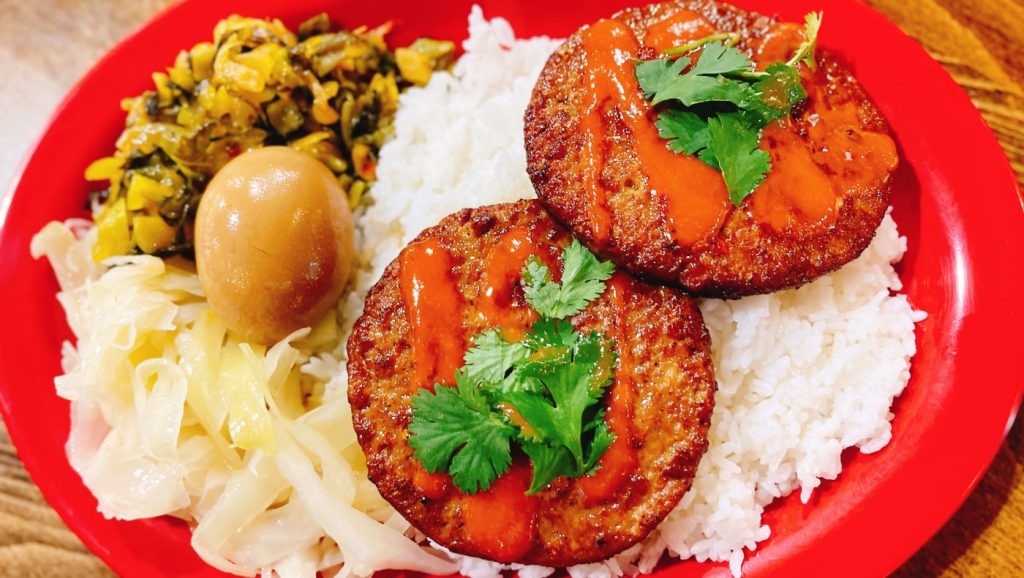
Fortunately, Luo’s steadfast efforts paid off. Love Bao quickly became well-known in Keelung. Soon, Taiwanese media outlets began noticing the venue and interviewed Luo, boosting awareness for his food even further. Tourists who traveled to Keelung also frequented the restaurant and loved Luo’s gua bao. With the approval of seemingly all who came to try his food, Luo knew he was ready, and that he could realize the dream that started his journey: introducing gua bao to the United States. And so, he opened the U.S. restaurant in July of 2019.
Promoting Vegetarianism While Cultivating Compassion
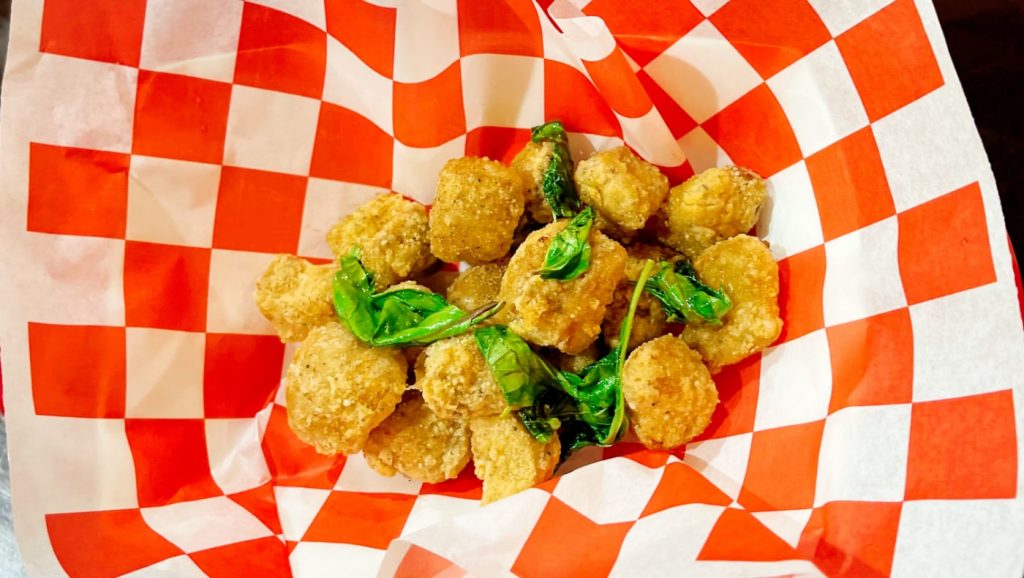
The traditional gua bao that most people are familiar with is not vegetarian, but Love Bao’s menu features several vegetarian snacks and meals, including Luo’s two signature vegetarian gua bao dishes. After meeting Tzu Chi through a prior environmental protection event more than 15 years ago, Luo has been a strict vegetarian, and thanks to the foundation provided by Luo’s father-in-law, Luo’s creativity flourished.
“Being vegetarian is just about cultivating compassion,” Luo said simply. But he was nonetheless delighted that his vegetarian creations were well-received. “I’d thought there would not be many vegetarian customers, but unexpectedly, the vegetarian options have been selling well.”
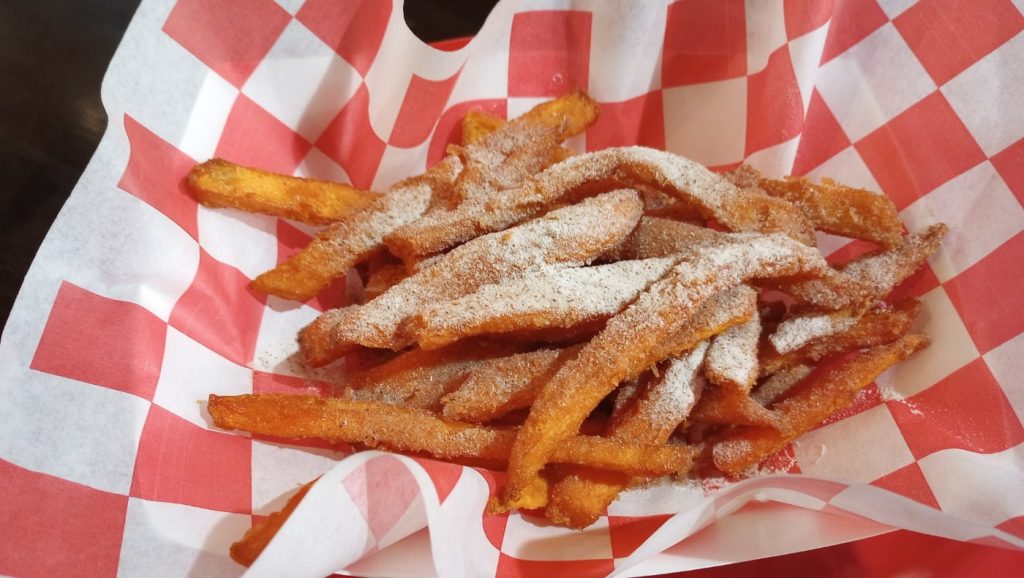
Luo uses konjac to make fresh veggie steaks, which are then seasoned with the same rich sauce used in regular gua bao. The resulting texture is rich, and the taste is equally delicious. Love Bao steadily became well-known in the local community, so when Tzu Chi’s Raleigh Service Center was planning a charity food sale, a Tzu Chi volunteer named Linda Wang visited the restaurant to invite Luo to participate in the event.
“I asked if he could give us a discount so that we could buy some gua bao for the charity food sale,” Wang recalled. “To my surprise, Mr. Luo offered to donate as much gua bao as we needed for free!”
That was the first time Wang ate at Love Bao. She remembered that there were many customers on that day, but Luo still worked meticulously, assembling the ingredients with great care. His movements were swift but never careless, and with something of an artist’s concentration. Wang was deeply impressed by his skill — and the delicious vegetarian gua bao she sampled later.
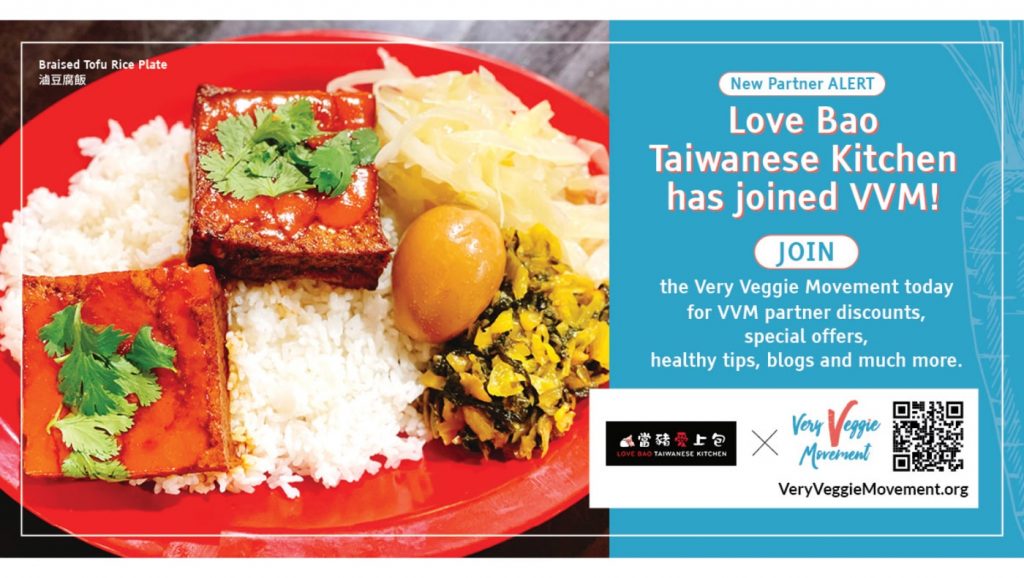
“I’m a vegetarian, but I dislike artificial meat patties,” Wang said. “So I love the fresh konjac vegetarian steaks that Love Bao serves up.”
Nowadays, guests at Love Bao include Taiwanese Americans who miss the taste of home, and Americans who are interested in trying Taiwanese snacks. This was indeed one of Luo’s greatest hopes when learning how to make gua bao — introducing even more people to the things he loves, and sharing in their enjoyment together. For him, food is a universal language that can connect the entire world.
“Food is just like music in that it knows no borders,” Luo said. “As long as it’s delicious, the customer will love it, no matter where they come from. You can communicate with anyone with food and music.”


